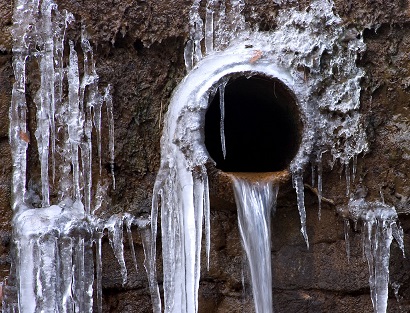Brokers with homeowners’ insurance policyholders might want to politely remind their clients that frozen pipes are a very real danger to their homes.
The
Insurance Bureau of Canada (IBC) issued a release Friday urging New Brunswickers to take the necessary precautions to prevent their pipes from freezing following the power outage that is affecting parts of the province.
“We encourage homeowners to take steps to avoid frozen pipes by following the advice of New Brunswick’s Emergency Measures Organization,” said IBC Atlantic vice-president Amanda Dean. “I encourage all residents of New Brunswick to monitor local weather conditions, listen to local authorities, and have a plan in place to keep you, your home, and your family safe. If you have any questions, contact your insurance representative or call IBC’s Consumer Information Centre…”
Want the latest insurance industry news first? Sign up for our completely free newsletter service now.
Homeowners were urged to turn off the water mains where they enter the home and to use blankets or other similar insulated materials to protect valves, inlet pipes, and meters and pumps. Water should be emptied from plumbing systems (including hot water tanks) to prevent freezing. Those planning to leave their homes should ensure that the water mains are shut off.
Other tips dispensed by the release include:
- Store valuable items in upper floors of your home, away from the basement.
- Test and maintain smoke detectors and carbon monoxide detectors.
- Ensure your furnace, wood stove and any other heating sources are in good working condition.
- Anchor interior and exterior fuel tanks to the floor or base with a tank stability bracket. A fuel tank can tip over or float in a flood, causing fuel to spill or catch fire. Make sure vents and fill-line openings are above flood levels. For propane tanks, contact the propane company on best storage methods.
- Run water through all plumbing fixtures regularly to prevent freezing.
- Test plumbing shut-off valves to ensure proper functioning.
- Inspect your attic for frost accumulation, and check your eavestroughs and roof for potential ice dams or icicles.
- Review your emergency plan with your family.
- Assemble an emergency supply kit, including being 72 hours without electricity.
- Prepare a detailed home inventory.
- Pay attention to local authorities and monitor weather developments regularly.
For those planning to claim on frozen pipes damage, the release recommended the following:
- When safe to do so, assess and document damage.
- Call your insurance representative and/or company to report damage or losses.
- Be as detailed as possible when providing information.
- If you need help getting in touch with your insurer, contact IBC’s Consumer Information Centre.
Related stories:
Arena roof collapses due to heavy snow
Winnipeg group says snow removal crews caused thousands of dollars in damage


